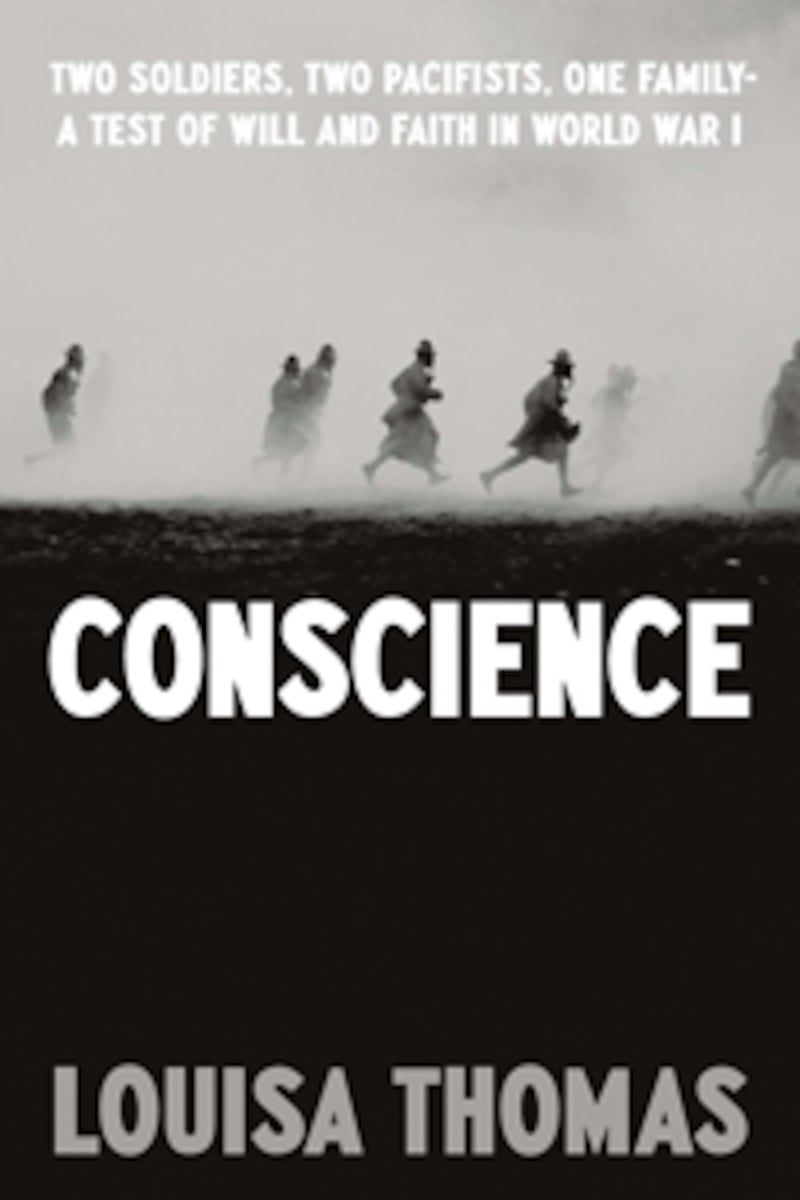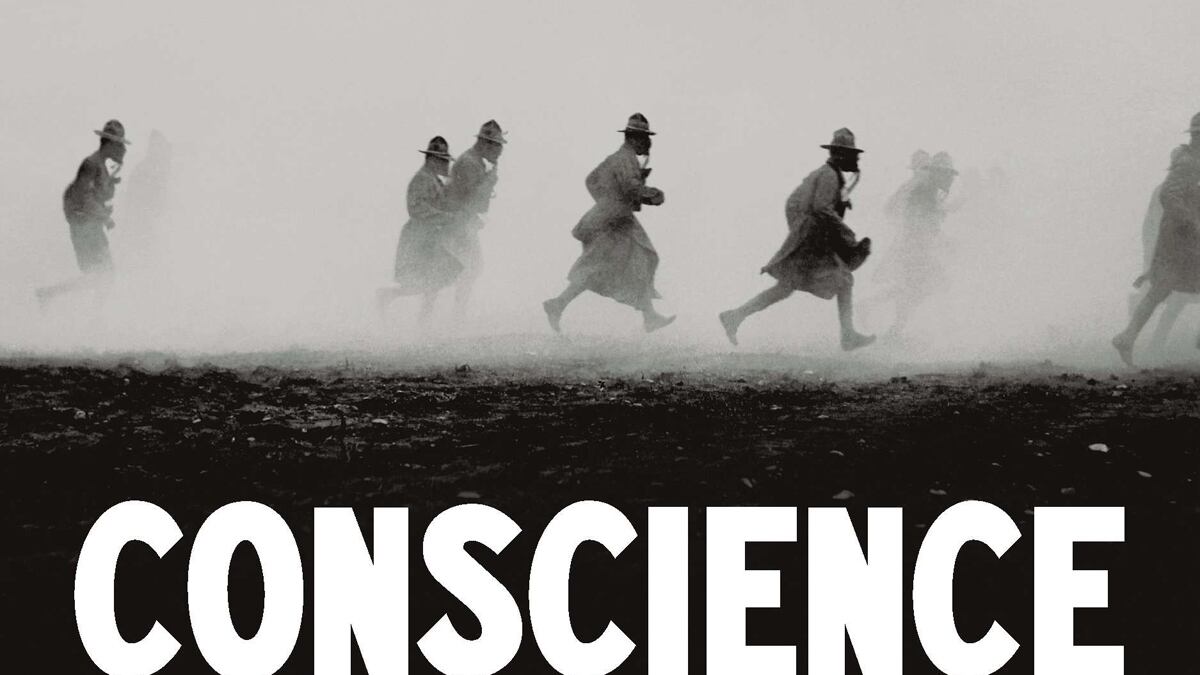My grandfather’s wartime memoir was treated almost like a family secret. I’d heard a rumor or two about it, and his obituary confirmed its existence, but I had never seen it. My parents did not have a copy. It didn’t appear to be on my grandparents’ shelves either. So when a family friend gave me a copy a year after he died, I was curious. I wanted the chance hear his voice. By the time I was a child, multiple sclerosis had wrecked his body and brain. Every time I saw him, he seemed to have lost more of his human shape, like a melting snowman. I remember him as more of a presence than a person, parked on the porch in his scooter or wheelchair, a vacant expression on his face while I did cartwheels to try to get his attention. He was like the past itself, affecting everyone in ways that no one would or could explain.
When I first read the book, a decade ago, I thought I knew why the book embarrassed him. It was bad. Perhaps I should have expected as much from the title, Ambulance in Africa: he had clearly read too much Hemingway. Evan Thomas II was 20 when he dropped out of Princeton to join the American Field Service, a month before Pearl Harbor, and 23 when he wrote the book. You can tell. Mostly, he recounts his adventures dodging bombs, meeting brave men, and eating a lot of bully beef. The high point comes during a novice boxing tournament aboard a troop transport ship, when he’s awarded “best loser.” He ends by summing up the morals of the story in a series of earnest non-sequiturs, mostly having to do with tolerance. The book told me only two things about him: where he got that huge tattoo of a snake etched on his forearm (Bombay), and that he was so painfully—almost selfishly—self-deprecating.

It can be strange to read the writing of a family member. One looks for a hero and for oneself. (One hopes the impressions will overlap!) Often, though, the experience is so unsettling. Where I looked for wisdom, certainty, and bravery, I found an uneasy mix of swagger, confusion, and apology. Partly, this was generational. Men like my grandfather were discouraged from starting sentences with “the Big ‘I’,” as the elder George Bush used to call the first-person pronoun. I knew from my father that when someone—often himself—acted selfishly, my grandfather would joke, “Pull up the ladder, I’m aboard!” He had a way of puncturing pride by calling attention to it. He also liked to say, without a trace of self-consciousness, “To thine own self be true.” Like many people of his time and outlook, and certainly like many members of his family (his socialist father, Norman Thomas, was forever running for president), my grandfather had a fraught relationship with his ego.
But the anxious tone was not merely due to the mores of his time. When I picked up Ambulance in Africa again a few months ago, while writing a book about my great-grandfather’s family during the First World War, I knew the story behind it. My grandfather’s uncle, after whom he was named, had been a conscientious objector during World War I, and in the fall of 1941 the elder Evan was the chairman of the War Resisters League. His father, Norman, had been a pacifist and was again speaking out against the United States’ entry into the war.
Time, not friendly to the socialist, gleefully reported a rift within the Thomas family. It was vigorously denied. In fact, Norman had given his son his blessing. “In a cruel and ugly world you never made you’ve chosen what is, for you, the best possible course,” Norman wrote to him. Evan, for his part, clearly tried to make his antiwar father proud. Even the morals he draws from his wartime experience echo his father’s convictions, sometimes oddly. (At one point he describes his overwhelming admiration for a West African hotel keeper who tells him “the governments of the world” should cooperate in developing natural resources for a “better universal standard of living.”)
We are expected to judge writing by its quality, to take books on their own terms. In that light, Ambulance in Africa is mostly a failure, and my grandfather (who went on to become a book editor) was right to be embarrassed by it. Any critic would conclude that the experience does not justify a memoir, and the prose doesn’t either. But it’s impossible for a granddaughter to be an objective critic. Nor should she be. It’s precisely in its confusions that the book has value. It’s the story of a kid battling with competing expectations and desires, conflicting stories of how the world looks and how it should be. He was a snobby Princeton senior who distrusted his own snobbery.
He wanted to be a hero and also humble. He wanted to be his father’s son, and also to make his own way. He thought war wrong and also right. It is no wonder he could not find the balance between self-effacement and self-promotion.
Evan could never justify himself by writing an account of his experience, any more than a descendent could justify herself by reading it. What’s not said overwhelms what is. Evan doesn’t mention his family at all in his book. He ignores the real story. By itself, the memoir doesn’t say anything worthwhile about World War II or what he thought and felt about it. But Ambulance in Africa doesn’t exist by itself. It’s part of a family narrative, and ignoring the real story is what family narratives do. Conflicts between fathers and sons, or sisters and brothers—or within oneself—aren’t resolved, they’re lived with. Lives aren’t justified, and neither is love. Neither was that memoir, but to his granddaughter that turned out to be beside the point.






